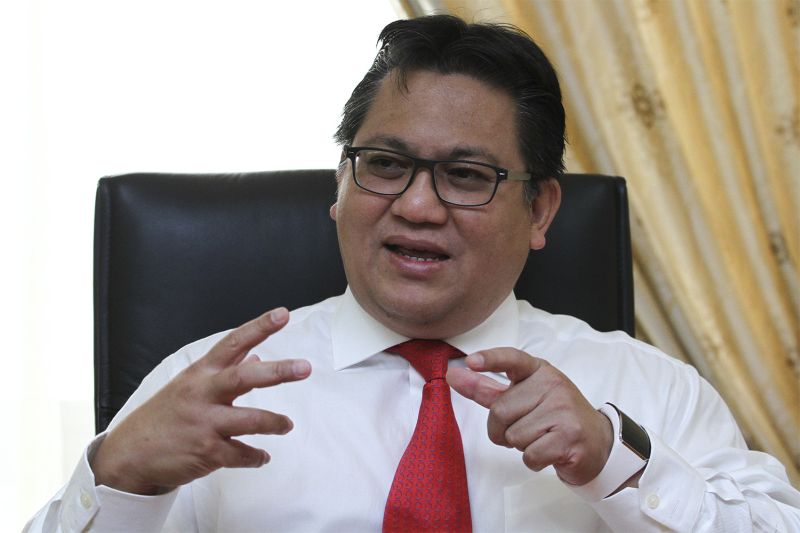KUALA LUMPUR, Jan 10 ― Though many cultures have the title “bin” or “binti” inserted as part of their names, the practice is most widespread among Muslims in Malaysia, where it has caused controversy in recent years due to reports of unilateral insertion by the National Registration Department (NRD).
Amid the buzz, Deputy Home Minister Datuk Nur Jazlan Mohamed clarified to Malay Mail Online that the NRD inserts the titles for all Muslim children, regardless of their ethnicity, for legal reasons such as determining lineage for inheritance purposes.
“This is as verification that those children are the biological children (legitimate children) of those who have been attributed Bin/Binti,” he said when contacted yesterday.
The “bin” and ‘binti” titles (which mean “son of” or “daughter of”) are prefixes to patronyms among Malaysian Malays who are also constitutionally Muslim and who do not usually have surnames or family names.
“Therefore, the use of Bin/Binti for those who are Muslims is very important because it can also determine the nasab (paternity) of those children, which will have an impact on matters relating to mahram (unmarriageable kin), inheritance, guardian and other related laws,” he said.
Nur Jazlan also explained the NRD's “bin” and “binti” policy on Malaysian Muslim children born out of wedlock.
“Through the National Registration Department Order 8/2009 about the Procedure of Registering the Birth of Illegitimate Children for Muslim Couples under the provision of Section 13, Births and Deaths Registration Act (Act 299), the use of Bin/Binti for illegitimate children can only be Bin/Binti Abdullah or Asma Al Husna only.
“They cannot be given Bin/Binti to those who claim to be the biological father of those children,” he said.
Abdullah is a name in Arabic meaning “servant of God”, while Asma Al Husna is a phrase that refers to the 99 names ascribed to Allah.
“This order is based on a fatwa issued by the Fatwa Committee for National Council of Islamic Affairs Malaysia,” he said.
In 1981, the Fatwa Committee had decided that an illegitimate child, regardless of whether their birth is followed by the marriage of their parents, shall be given the name with the title “bin Abdullah” or “binti Abdullah”.
Despite all that, the use of “bin” or “binti” is not quite automatic for Muslims.
“During registration, applicants will be issued with Birth Certificate Dummy/Draft for the parents' consent which covers the name of the children which has been given Bin/Binti to their father, before a valid Birth Certificate is issued,” he said.
He added that parents can also apply to the Registrar of Births to omit the term “bin” or “binti” if they have certain reasons, while those who later embraced Islam can keep their names at birth.
“If they wish to change their names by inserting Bin/Binti, this can be done. If they do not wish to insert Bin/Binti, that can also be considered,” he said, referring to those who became Muslims.
But the deputy minister also made it clear that the titles are not a sole religious distinction, at least in Malaysia.
“Meanwhile, for Sabah and Sarawak natives, the use of Bin/Binti has become a norm in the registration of the names of their children, although they are not Muslims,” he said.
Nur Jazlan was responding to Malay Mail Online’s request for clarification following the NRD’s reported controversial move in unilaterally inserting the word “bin” in its records to the name of a Chinese Muslim boy, despite the word being absent in his birth certificate.
Local vernacular daily China Press reported last week that a Chinese Muslim businessman by the surname of Khoo had two years ago discovered that the NRD made the change when he applied for a passport for his son. However, he later managed to get the NRD to reverse the addition of the word “bin”.
In Malaysia, the words “bin” and “binti” are commonly used for a child of Malay ethnicity, with these patronyms denoting whether someone is respectively a man’s son or daughter.
Being a Muslim is often closely associated with being Malay in Malaysia despite religious and ethnic identity being separate matters, as the Federal Constitution’s Article 160 defines a Malay as being among other things a “person who professes the religion of Islam, habitually speaks the Malay language, conforms to Malay custom”.
This has led to problems in east Malaysia, with reported cases of multiple non-Muslim natives in Sabah being wrongly registered by the NRD as Muslims due to the “bin” and “binti” titles in their names. The prime minister said last November that ways to resolve this issue must be found.
As for the NRD's policy on how the use of the words “bin” or “binti” applies to illegitimate Muslim children, this issue had cropped up in 2011 where some Malaysians had reportedly complained of their premature babies being born less than six months from marriage being assigned “bin/binti Abdullah” and where the Terengganu state government had proposed to the NRD that illegitimate Muslim children be allowed to bear their fathers’ names.



















